There are many substance abuse treatment programs in Georgia. If you’re seeking professional help for yourself or someone you care about, it may be beneficial to look for specific treatment programs that focus on the problem at hand — for example, a meth addiction treatment program.
Meth use results in increased activity, decreased appetite, enhanced sociability, and feelings of pleasure. When meth is smoked or injected, it causes an immediate and intense rush. This pleasurable effect lasts longer than the rush from taking cocaine — in fact, taking meth causes an increase in levels of dopamine, a brain chemical that plays an important role in motivation and reinforcement.
However, meth use is not healthy and can lead to many severe and negative consequences in the long term. Searching for a meth addiction treatment program in Athens, GA? Contact Athens Addiction Recovery Center today by calling 844.959.4998 or reaching out to our team online.
What Is Meth?
Methamphetamine (meth) is a highly addictive and potent central nervous system (CNS) stimulant. It’s chemically similar to amphetamines, such as Adderall or Dexedrine. Methamphetamine, as the branded version Desoxyn, is typically prescribed for attention-deficit/hyperactivity disorder (ADHD) and narcolepsy. Meth differs from amphetamine in that, at comparable doses, greater amounts of meth get into the brain. Meth also has longer-lasting and more harmful effects on the central nervous system.
More commonly, meth is used illicitly in the form of crystal meth. Street-level crystal meth, as its name connotes, is crystalline in form. The crystals are crushed and consumed orally, injected, smoked, or snorted. Meth has been classified by the U.S. Drug Enforcement Administration (DEA) as a Schedule II stimulant, which makes it legally available only through a nonrefillable prescription.
What Are the Signs of Meth Addiction?
The unfortunate reality is that problematic meth use is not often recognized until it develops into an addiction. However, if you or someone you care about is struggling with meth addiction, it’s essential to get admitted into meth rehab as soon as possible.
Here are some physical dangers or signs of meth dependency and addiction that are easily observable:
- Convulsions
- Dramatic increase in body temperature
- Droopy facial skin
- Facial acne or sores
- Impaired immunity and susceptibility to infectious disease
- Increased libido
- Intense scratching
- Liver damage
- Rotted teeth, also known as “meth mouth”
- Stroke
- Weight loss
The increased libido side effect can leave a person with a meth addiction exposed to a host of sexually transmitted diseases. When combined with the lower inhibitions and risky behavior associated with meth use, those with increased libido are likely to engage in sexual relations without using any protection. As many who struggle with meth addiction also inject the drug, there’s also an increased risk for HIV infection.
Meth addiction can cause psychosis in some people. Features of meth-induced psychosis include delusions, hallucinations, paranoia, and irritability. Intense scratching is a physical side effect that can be rooted in psychosis. People who experience meth-induced psychosis may perceive bugs crawling all over their skin, and constant scratching and picking are ways to relieve the perceived affliction. As a result of this aforementioned scratching and picking, skin abrasions and rashes will likely develop.
When Should You Consider a Meth Addiction Treatment Program?
First, let’s define a meth addiction treatment program. Meth rehab typically puts clients through a comprehensive treatment plan that consists of assessment, detoxification, counseling, therapy, and aftercare.
Assessment uncovers a client’s medical history and addiction history, which is useful because an addiction treatment program is usually customized to a client’s specific needs. Detox purges the physical presence of meth and other addictive substances from the body and helps clients acclimate to functioning in daily life without using meth. Counseling and therapy address the psychological damage done by substance abuse, as well as educate clients on how to avoid setbacks and maintain long-term sobriety.
If you or someone you love is struggling with a chronic or serious meth addiction, the assessment phase may have experts recommending admission into an inpatient treatment program after going through medical detox. Meth addiction is very difficult to overcome, and professional addiction treatment is often essential. People who attempt to quit meth alone are rarely able to make a lasting recovery.
Begin the Journey to Recovery at Athens Recovery
If you’re looking for a meth addiction treatment program in Athens, GA, contact Athens Addiction Recovery Center today. Call 844.959.4998 or reach out to our team online.
